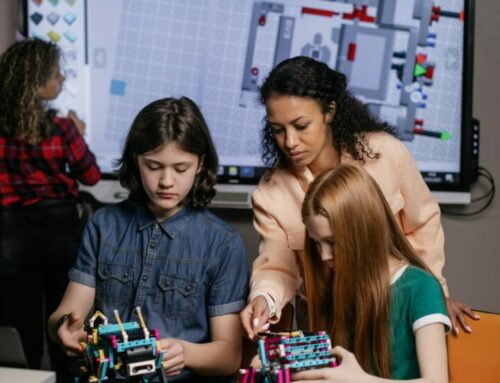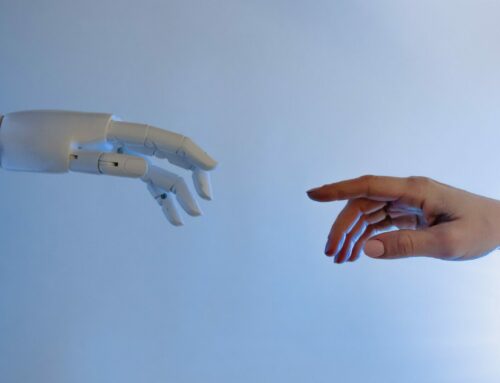Humans are Extraordinary, but Need a Change in Mindset
Patrick Blessinger, Abhilasha Singh, Fareeda Khodabocus, and Amudha Poobalan
Humans are an extraordinary species in many ways. From their modest beginnings along the East African Rift many millennia ago, humans have evolved to develop some remarkable traits – physical, mental, and social. As a result, not only have humans become the most dominant species on the planet, but they have also become by far its most intelligent, imaginative, adaptable, and resourceful species.
This outcome is the result of some very fortuitous events that have happened to humans along their evolutionary pathway. Over the course of their evolution, humans have hit the evolutionary super jackpot several times (perhaps a one hundred trillion to one outcome) when they developed the following advantageous traits, among others: bipedalism, opposable thumbs, the hyoid bone, and, consequently, big and powerful brains.
For example, bipedalism is likely the foremost characteristic that put hominids on the long road to becoming modern humans. Bipedalism, as well as favourable genetic mutations, are likely to have facilitated other evolutionary developments like opposable thumbs and hyoid bones.
Humans are the only mammals to have fully opposable thumbs and this feature allows them to climb, grasp and throw objects, develop and manipulate tools and work with fine motor skills as well as allowing for advanced communication like writing.
And the human hyoid bone is the only hyoid bone in the animal kingdom that allows for complex speech. This highly unique combination of traits has allowed humans to evolve into self-aware creatures capable of astonishing feats of intelligence.
Dawn of a new epoch
The Earth has been 4.6 billion years in the making and living organisms have been evolving for the past 3.5 billion years. Thus, the type and degree of biodiversity present on Earth has taken a long time to evolve.
The dawn of a new aeon, era, period or epoch is the result of some major event(s) that alter the environment, such as mass extinctions, the evolution of new species, and major environmental changes.
Since the advent of the Industrial Revolution around 1800 CE, the Earth has entered a new epoch known as the Anthropocene, which has superseded the Holocene epoch.
During the Anthropocene epoch (1800 CE to present), humans have made a significant impact on the Earth’s environment in both good and not-so-good ways. During the past 200 years, humans have made enormous progress in all spheres – political, economic, social, and technological.
A shortlist of progress includes a dramatic rise in democratic governments around the world, in average gross domestic product per capita, in average life expectancy and advanced social systems, and in scientific discoveries and technological inventions.
Yet, despite the clear and unambiguous data that shows that a much higher percentage of people on the planet are better off now than people were 200 years ago, there still remain large wealth and education disparities among people across countries, often resulting in stagnation or worsening of social and environmental indicators in some countries.
Thus, while many global indicators expressed as averages may look good, many people still have not benefited from the progress made over the past 200 years.
In addition, the data is also clear and unambiguous that the environment in many places has not improved. In the past two centuries, we have seen widescale environmental degradation, dramatic population growth and urbanisation, climate change, species extinction, air, land, and water pollution, and mass deforestation, among other challenges.
Humanity’s moral obligation
So, what does all this mean for humanity’s role on planet Earth? First, if the human species is the dominant species on Earth and perhaps even the only intelligent lifeform in the observable universe, then it follows, from an ethical and humanistic perspective, that they are also morally obligated, as free and responsible moral agents, to protect the welfare of the planet for current and future generations.
This is why the Sustainable Development Goals are so vital and necessary to humanity’s long-term future and survival.
First, humans must come to the realisation, sooner rather than later, that human actions in the modern epoch have had a major impact on the entire planet.
This realisation involves a change in mindset – one that is better suited to the realities of life in the 21st century, such as Society 5.0 and Industry 5.0.
The change towards a sustainability mindset is important because humanity is facing unparalleled challenges brought about by human-induced actions and because humans have only one planet to call home.
Second, higher education institutions in particular must evolve into places and spaces where the consumption and production of knowledge benefits all humanity by focusing on the most pressing problems of the planet.
Universities can lead the way
Universities can lead the way by modelling how to improve planetary resources through maintaining a zero-carbon footprint. Also, universities can lead the way by partnering with other organisations to help achieve the sustainability goals.
A sustainable mindset centres on a rights-based approach to education at all levels that creates an equitable and inclusive world for all.
A sustainable mindset respects diverse cultures and diverse ways of knowing. Just as all biological and social systems continually evolve, higher education institutions must also learn to evolve by reflecting on how best they can help solve the world’s most challenging problems and by serving as places for lifelong and lifewide learning.
Humans must rethink their relationship to the planet and to each other. Human solidarity lies in the fact that we are part of the same human race and, as such, we must learn to work together for the welfare of our planet and the survival of our species. This imperative can be expressed in the following verse:
The human species emerged from the East African Rift
along the Horn of Africa – the cradle of human life –
and traveled the long road out of Eden to find new lands.
Now all the people living on planet Earth wear and share
the same ancient genes – beautiful hand-me-downs –
bestowed upon us by our distant African ancestors.
Though we belong to many tribes across many countries,
we are born into the same family – the human family –
and we all belong to one indomitable human race.
Patrick Blessinger is president and chief scientist for the International Higher Education Teaching and Learning Association, USA. Abhilasha Singh is vice-president for academic affairs at the American University in the Emirates, UAE. Fareeda Khodabocus is director of quality assurance at the University of Mauritius. Amudha Poobalan is a senior lecturer in public health at the University of Aberdeen, Scotland.
Suggested Citation:
Blessinger, P., Singh, A., Khodabocus, F., and Poobalan, A. (2022). Humans are Extraordinary, but Need a Change in Mindset, Volume 8, Article 5. www.patrickblessinger.com/humans-are-extraordinary-but-need-a-change-in-mindset
Copyright © [2022] Patrick Blessinger, Abhilasha Singh, Fareeda Khodabocus, and Amudha Poobalan.
Disclaimer
Opinions expressed in this article are those of the authors, and as such do not necessarily represent the position(s) of other professionals or any institution.




